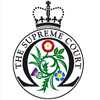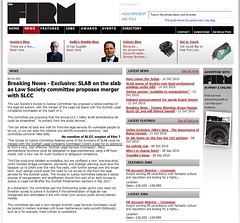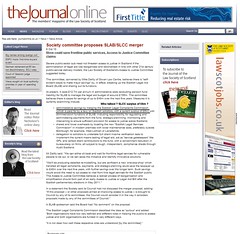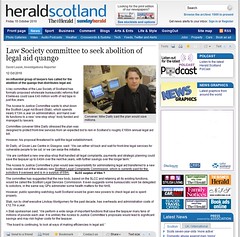 UK Supreme Court throws out Scots Police right to question suspects without a lawyer. SCOTTISH POLICE have now lost the ability to question suspects without their solicitor being present, after the UK’s Supreme Court in London finally issued its ruling today on the Appeal case of Cadder (Appellant) v Her Majesty's Advocate (Respondent) (Scotland), throwing out the practice in Scotland of being able to question suspects without a solicitor in attendance as being a violation of Human Rights laws.
UK Supreme Court throws out Scots Police right to question suspects without a lawyer. SCOTTISH POLICE have now lost the ability to question suspects without their solicitor being present, after the UK’s Supreme Court in London finally issued its ruling today on the Appeal case of Cadder (Appellant) v Her Majesty's Advocate (Respondent) (Scotland), throwing out the practice in Scotland of being able to question suspects without a solicitor in attendance as being a violation of Human Rights laws.
The background to the case : The Appellant was detained by the police on suspicion of serious assault and cautioned, in line with the statute, that he did not have to answer any question, beyond giving his name, address, date and place of birth and nationality. He was told that he was entitled to have a solicitor informed of his detention but he did not exercise that right. He was interviewed without a lawyer being present. During interview, the Appellant made a number of admissions. At trial the Crown led evidence of the police interview with the Appellant and relied on the admissions. The Appellant was convicted.
Sections 14 and 15 of the Criminal Procedure (Scotland) Act 1995 allow a police constable to detain a person whom he has reasonable grounds for suspecting has committed or is committing an offence punishable by imprisonment. Detention may last for up to six hours. During detention, the police may put questions to the detainee, although the detainee is under no obligation to answer them and is to be informed at the outset of the detention that he is under no such obligation. The detainee is entitled to have a solicitor informed of his detention. However, in terms of the statute, the detainee has no right of access to a solicitor. The question is whether that is a breach of the right to a fair trial, recognised in Article 6(1) and 6(3)(c) of the European Convention of Human Rights (“the ECHR”).
In Salduz v Turkey (2008) 49 EHRR 421 the Grand Chamber of the European Court of Human Rights unanimously held that there had been a violation of Articles 6(1) and 6(3)(c) ECHR because Salduz had not had the benefit of legal advice when he was in police custody. In Her Majesty’s Advocate v McLean [2009] HCJAC 97, the High Court of Justiciary (sitting with seven judges) held that, notwithstanding the decision in Salduz, it was not a violation of Articles 6(1) & 6(3)(c) ECHR for the Crown to rely at trial on admissions made by a detainee while being interviewed without having had access to a solicitor. This was because the guarantees otherwise available in the Scottish legal system (and, in particular, the requirement that there be corroborated evidence in order to convict) were sufficient to provide for a fair trial. In the present case, relying on the decision in McLean, the appeal court refused the Appellant leave to appeal against his conviction. In effect, therefore, the present case is an appeal against the decision in McLean.
Lord Hope, in his statement to the court was critical of the fact no one until now had though the arrangements for questioning suspects without solicitors in attendance in Scotland was wrong. He said : “It is remarkable that, until quite recently, nobody thought that there was anything wrong with this procedure. Ever since the statutory power to question a suspect prior to charge was introduced by sections 1 to 3 of the Criminal Justice (Scotland) Act 1980, the system of criminal justice in Scotland has proceeded on the basis that admissions made by a detainee without access to legal advice during his detention are admissible. Countless cases have gone through the courts, and decades have passed, without any challenge having been made to that assumption. Many more are ongoing or awaiting trial - figures were provided to the court which indicate there are about 76,000 such cases - or are being held in the system pending the hearing of an appeal although not all of them may be affected by the decision in this case. There is no doubt that a ruling that the assumption was erroneous will have profound consequences. But there is no room, in the situation which confronts this court, for a decision that favours the status quo simply on grounds of expediency. The issue is one of law, as the court appreciated in McLean. It must be faced up to, whatever the consequences.“
The Judgment stated : The Supreme Court unanimously grants leave to appeal and then goes on to allow the appeal. The ECHR requires that a person who has been detained by the police has the right to have access to a lawyer prior to being interviewed, unless in the particular circumstances of the case there are compelling reasons to restrict that right. The Supreme Court remits the case to the High Court of Justiciary for further procedure. Lord Hope (Deputy President) delivers the leading judgment, with which Lord Mance agrees. Lord Rodger delivers a separate judgment, agreeing with Lord Hope but adding observations of his own. Lord Walker, Lord Brown, Lord Kerr and Sir John Dyson SCJ agree with the reasons given by both Lord Hope and Lord Rodger.
The judges also said their ruling was not entirely retrospective, and left the Scottish Criminal Cases Review Commission to determine if closed cases may be referred back to the High Court : This decision does not permit closed cases to be re-opened. Although a judicial decision has retrospective effect, it does not affect cases which have been finally determined (namely, where an accused was convicted and did not appeal within the relevant time limits, or did appeal and the appeal has been finally disposed of). The decision will, however, affect cases which have not yet gone to trial, where the trial is still in progress or where an appeal has been brought in time and is not yet concluded. The Scottish Criminal Cases Review Commission, if it is asked to do so, will have to determine whether it is in the public interest for cases which have already been finally determined to be referred to the High Court, which will in turn have to decide how to deal with such cases, if a reference is made.
The full judgement can be downloaded here : Cadder (Appellant) v Her Majesty’s Advocate (Respondent) (Scotland) (pdf)
 Scotland’s Justice Secretary Kenny MacAskill issued a statement on the Supreme Court’s ruling, saying emergency legislation would immediately follow. Mr MacAskill gave the usual praises for Scotland’s ‘proud, distinctive’ justice system, despite the burgeoning catalogue of unjust convictions, allegations of miscarriages of justice & a Victorian civil justice system unfit for use even in a nursery. (Shouldn’t that be proud & distinctive as in who it wrongfully convicts, victimises or refuses to grant access to justice to ? – Ed)
Scotland’s Justice Secretary Kenny MacAskill issued a statement on the Supreme Court’s ruling, saying emergency legislation would immediately follow. Mr MacAskill gave the usual praises for Scotland’s ‘proud, distinctive’ justice system, despite the burgeoning catalogue of unjust convictions, allegations of miscarriages of justice & a Victorian civil justice system unfit for use even in a nursery. (Shouldn’t that be proud & distinctive as in who it wrongfully convicts, victimises or refuses to grant access to justice to ? – Ed)
Scottish Government statement follows :
Swift action to change Scots law
26/10/2010
The UK Supreme Court has today decided that one aspect of criminal procedure in Scotland is incompatible with the European Convention on Human Rights.
The judgement - which does not permit closed cases to be reopened and as such will not be retrospective - will prompt swift action from the Scottish Government that has been planned for months.
Responding to the decision of the Supreme Court in relation to the Cadder case, Justice Secretary Kenny MacAskill said: "I note today's decision by the Supreme Court. It is a decision we did not seek but it is one to which we must respond.
"The decision overturns decades of criminal procedure in Scotland, a proud, distinctive, justice system, developed over centuries, and predicated on fairness with many rigorous protections for accused persons. It is rightly admired by other jurisdictions. This issue is about legal advice at one step in the investigatory process.
"Today's judgement in the Supreme Court has gone against the unanimous decision last October by seven Scottish High Court judges at the Scottish Appeal Court that determined that an aspect of Scottish criminal procedure does not comply with the European Convention on Human Rights.
"We are concerned that the current devolution arrangements have created an anomaly that seems to put Scottish law at a disadvantage in comparison to elsewhere in the EU. I want to see steps taken to address this anomaly. But we cannot ignore the Supreme Court's decision.
"And while it necessitates changes to Scotland's justice system, these are changes that have been anticipated and planned for. For over a year, the Scottish Government, Crown Office, Scottish Legal Aid Board (SLAB), ACPOS and the Scottish Court Service have been preparing contingency plans to deal with all possible eventualities arising from this case. The Lord Advocate - in anticipation of an adverse judgement - issued interim guidance earlier this year.
"With Parliament's support we will be making swift legislative changes to protect the victims of crime and safeguard communities. The main changes will mean introducing a right of access to legal advice before being questioned, extending the period during which a person may be detained under section 14 of the Criminal Procedure (Scotland) Act 1995, powers to adjust legal aid eligibility rules and measures to ensure certainty and finality in concluded cases.
"We will be introducing this emergency legislation to Parliament on Tuesday - and with the support of the other political parties we can complete the parliamentary scrutiny and debate process during the course of Wednesday. We anticipate the Bill receiving Royal Assent by Friday.
"In addition to these necessary legislative changes, I am today announcing that Lord Carloway, a senior High Court judge, will lead a review of Scottish criminal law and practice in the aftermath of the Cadder decision. I have asked Lord Carloway to make swift progress with his review and report to me within months - certainly in time to allow legislation to be considered for the 2011-12 Parliamentary session.
"Our distinctive justice system is one which protects accused persons. However human rights also extend to victims and to all of the people of Scotland, and the Scottish Government and justice partners will continue to fight to ensure that the rights of the victims and indeed wider society remain at the forefront of the Scottish justice system."
Lord Advocate Elish Angiolini also issued a statement, saying : "The Supreme Court's judgment in Cadder v HMA is a significant ruling for Scots law.
"Until today, the Scottish legislation regarding access to a solicitor prior to and during police detention was held to be compliant with the European Convention on Human Rights. Indeed Scotland's highest criminal Court of Appeal looked at this very issue in the case of McLean less than a year ago. In that case seven judges held unanimously at that time that Scots law and practice was compatible with the Convention requirements.
"Prosecutors work within the law made by Parliament and as interpreted and stated by the courts. Today's ruling in Cadder changes understanding of the law as set out in McLean, and so we will immediately adapt our working practices to this new legal landscape.
"I note that the Court has stated that its decision does not apply to cases that have been finally determined. This very significantly limits the number of cases potentially affected by this judgment.
"In preparation for the possibility of this change, we have been working with the police and the Scottish Government to minimise the risk to live cases. We have of course taken precautionary measures: in early 2009 I issued guidance to prosecutors, instructing them only to use admissions made by suspects who had not had legal advice before interview in a police station where this was considered essential for the Crown case. Earlier this year, following the hearing before the Supreme Court, I issued Guidelines to the police requiring them to provide access to a solicitor prior to and during interview.
"Unlike any other jurisdiction in Europe, Scots law requires two sources of evidence to support each essential fact in a prosecution. This rule of 'corroboration' presents a further challenge to prosecution in Scotland, which does not apply in this wholesale manner in other jurisdictions.
"The balance of rights for accused in Scotland will now need to be carefully considered. It must be ensured that the Convention rights of victims to have 'effective criminal sanctions in place' are maintained where their human rights are flouted by the criminal actions of another.
"In light of this, I welcome the announcement by the Cabinet Secretary for Justice of Lord Carloway's review of the laws of criminal procedure and evidence in Scotland following the Supreme Court's decision. I consider such a review important to ensure, as the Supreme Court itself recognises at paragraph 97 of its opinion 'that any revised scheme is properly balanced and makes for a workable criminal justice system'.
"The Crown Office and Procurator Fiscal Service will continue to work with the police and with the Scottish Government to protect the integrity of pending prosecutions."









